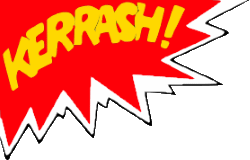WIDE BOY CROWS AS +3 SOFTWARE SWELLS
ALAN SUGAR’S much derided notion of several games on a +3 disk has come true with Martech’s Four Top Games. On one £14.99 disk are the new Slaine (review next issue), Catch 23 (56% Overall in Issue 43), Nemesis The Warlock (61% in Issue 40) and Pulsator (66% in Issue 42) — that’s just £3.75 each!

Amstrad Chairman Alan Sugar: ‘Arthur Daley of the computer world’
Even cheaper is budget house Pirate Softwares Pirate 3 +3 at £9.95. Titles on that are Call Me Psycho (47% in Issue 46), Holiday in Sumaria (16% in Issue 46) and Smash Out! (11% in Issue 46).
Software Publishing Associates, Pirate’s parent company, is also putting full-pricers like Erik: Phantom Of The Opera (based on Gaston Leroux’s classic horror novel, and out November 27) on +3 disk — at a two-quid premium. That one’s £9.95 on disk but just £7.95 on tape.
US Gold has also announced its support for the new machine with Gauntlet, World Class Leaderboard and Outrun due for disk release before Christmas at £12.99 each.
And on the utilities front, Tasman’s word processor Tasword is available for the +3 at £19.95. It’s ‘the most comprehensive version of Tasword ever released for the ZX Spectrum,’ the manufacturers claim.
Backing up Amstrad boss Sugar’s scheme to make disk software viable — the actual three-inch disks are pricy at £1.75 each earlier this year, and having just one game on each wastes pounds worth of memory — Martech’s David Martin said ‘we believe people who buy the +3 will be looking for good quality titles in a single value-for-money package’.
Meanwhile, despite being called the ‘Arthur Daley of the computer world’ on a late October Wogan show, Sugar has other reasons to be pleased — his Amstrad was named Britain’s fastest-growing company by Business magazine.
The survey of 500 top firms showed that in the year 1986-87 Sugar’s electronics giant, which bought the rights to the Spectrum from Sir Clive Sinclair’s Sinclair Research in April 1986, had a turnover of £304 million — that’s 123% up on last year.
£75,284,000 of that was profit (before tax), making Amstrad the country’s 107th most profitable company too.
